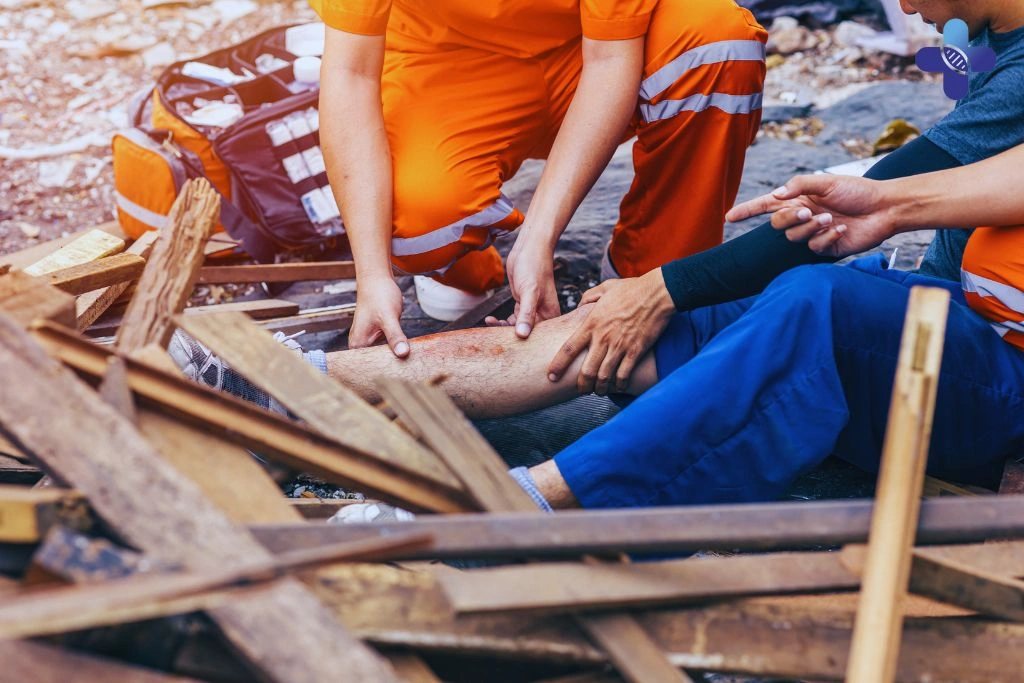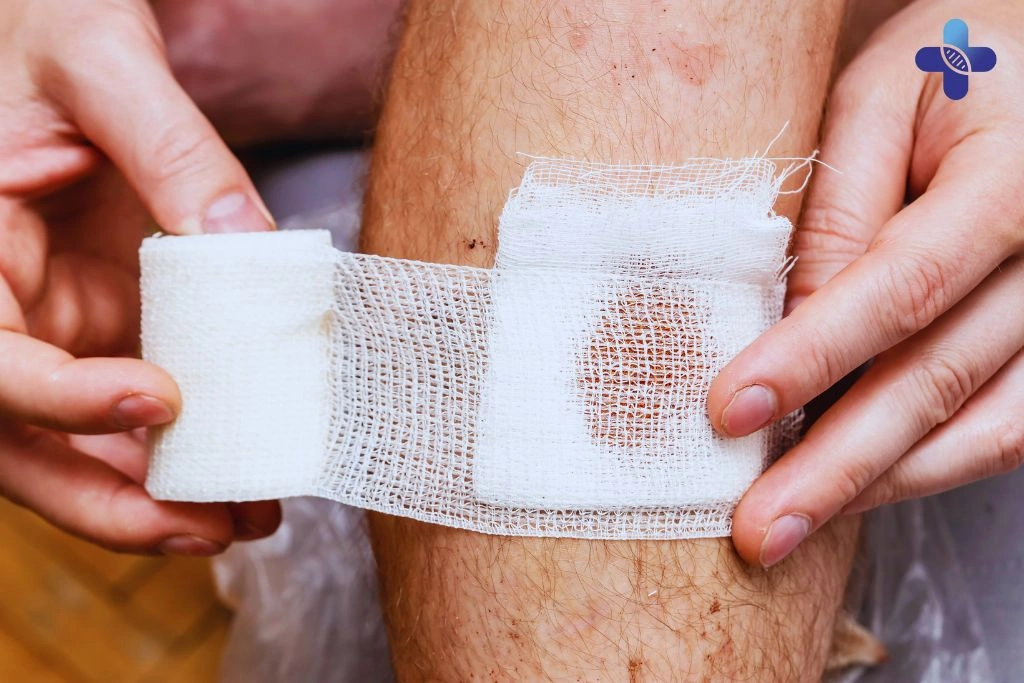Tetanus is a serious bacterial infection that affects the nervous system and can lead to severe muscle stiffness and spasms. While Bali is a tropical paradise, the risk of tetanus should not be ignored, especially for travelers exploring nature, engaging in outdoor activities, or suffering from wounds. As one of the list of common diseases in Bali, tetanus can pose a significant health risk if not addressed promptly. Life Everyouth Bali provides comprehensive tetanus prevention and treatment to ensure a safe and healthy stay on the island.

Preventing Tetanus in Bali: Essential Vaccination and Safety Tips for Travelers and Residents
Tetanus is a serious bacterial infection that can enter the body through cuts, wounds, or punctures, particularly in outdoor environments where bacteria thrive. While the risk of tetanus in Bali is low with proper precautions, ensuring vaccination is up to date and practicing good wound care are essential steps for protection. By understanding how tetanus spreads and taking necessary safety measures, travelers and residents can minimize risks and enjoy a safe experience. Life Everyouth Bali offers tetanus vaccinations and professional wound care to help prevent infections and ensure peace of mind.
Understanding Tetanus
Tetanus is caused by the Clostridium tetani bacteria, which enters the body through cuts, punctures, or wounds exposed to contaminated surfaces. Once inside, the bacteria release toxins that attack the nervous system, leading to muscle rigidity and spasms. At Life Everyouth Bali, we emphasize the importance of early detection and timely medical intervention to prevent complications.
Common Symptoms of Tetanus
Lockjaw (Jaw Stiffness)
One of the first and most noticeable symptoms of tetanus is stiffness in the jaw, also known as lockjaw. This condition makes it difficult to open the mouth and chew, leading to complications in speaking and eating. If left untreated, the stiffness can spread to other parts of the body, increasing discomfort.
Painful Muscle Spasms
Tetanus often causes intense muscle spasms, particularly in the neck, back, and abdomen. These spasms can worsen over time, leading to difficulty in movement and severe pain. In extreme cases, the muscle contractions can be strong enough to cause fractures or interfere with vital bodily functions.
Difficulty Swallowing
Muscle rigidity in the throat can make swallowing extremely difficult, increasing the risk of choking or respiratory distress. If the condition progresses, it may lead to complications such as aspiration pneumonia, which occurs when food or liquid enters the lungs instead of the stomach.
Fever and Sweating
As the body’s immune system attempts to fight the bacterial infection, individuals may develop a fever accompanied by excessive sweating. This symptom often leads to dehydration, fatigue, and overall discomfort, requiring immediate medical intervention.
Elevated Heart Rate and High Blood Pressure
The nervous system reacts aggressively to the toxin produced by Clostridium tetani, resulting in an increased heart rate and high blood pressure. If untreated, these symptoms can lead to further cardiovascular complications, making immediate medical attention at Life Everyouth Bali essential.
Respiratory Difficulties
In severe cases, tetanus can cause life-threatening breathing difficulties due to muscle spasms interfering with normal lung function. Without timely intervention, this can lead to respiratory failure. Life Everyouth Bali advises anyone experiencing these symptoms after a wound or injury to seek immediate medical care to prevent serious complications.
Life Everyouth Bali advises anyone experiencing these symptoms after a wound or injury to seek immediate medical attention.

Risk Factors and Causes of Tetanus
Puncture Wounds from Sharp Objects
Deep puncture wounds, especially from rusty nails or contaminated sharp objects, provide an ideal environment for Clostridium tetani bacteria to thrive. These wounds are often difficult to clean thoroughly, increasing the risk of infection. Life Everyouth Bali emphasizes the importance of immediate wound care to minimize this risk.
Animal Bites or Scratches
Animal bites, including those from dogs, cats, or wild animals, can introduce bacteria into the body. Even minor scratches can pose a risk if the wound is not properly disinfected. Life Everyouth Bali provides post-exposure wound care and necessary vaccinations to protect against tetanus.
Open Wounds Contaminated with Soil or Dirt
Since tetanus bacteria are commonly found in soil, dust, and manure, open wounds exposed to these elements can become infected. Travelers engaging in outdoor activities like hiking or farming should be extra cautious. Life Everyouth Bali offers prompt medical assessment and preventive treatment for such injuries.
Burns and Skin Infections
Severe burns or untreated skin infections can create an entry point for tetanus bacteria. Any break in the skin that is left untreated can develop into a serious infection. Seeking medical attention at Life Everyouth Bali for wound cleaning and vaccination can help prevent complications.
To minimize the risk, Life Everyouth Bali provides wound care services and tetanus vaccinations for both residents and visitors.
Prevention and Treatment
Tetanus Vaccination in Bali
One of the most effective ways to prevent tetanus is through vaccination. Life Everyouth Bali offers tetanus shots and booster doses for travelers and locals who may be at risk. It is recommended to get a tetanus booster every 10 years or after a high-risk injury.
Immediate Wound Care
Proper wound care is essential in preventing tetanus infection. Life Everyouth Bali provides professional medical care, including wound cleaning, disinfection, and preventive tetanus treatment. If a patient presents with a contaminated or deep wound, immediate tetanus immunoglobulin (TIG) may be administered. Our clinic specializes in wound care in Bali, ensuring that every injury is treated with the highest standard of medical care to prevent complications like tetanus.

Tips for Staying Safe
Tetanus is a serious bacterial infection that can enter the body through cuts, wounds, or punctures, particularly in environments where bacteria thrive. Taking preventive measures is essential to reduce the risk of infection. Life Everyouth Bali provides expert medical care, including tetanus vaccinations and wound treatment, to help you stay protected.
Keep Your Tetanus Vaccination Up to Date
One of the most effective ways to prevent tetanus is by ensuring your tetanus vaccination is current. The tetanus vaccine provides long-term protection, but booster shots are necessary every ten years. Life Everyouth Bali offers tetanus vaccinations for those needing an update or immediate protection after a wound.
Clean All Wounds Immediately with Antiseptic Solutions
Proper wound care is crucial in preventing bacterial infections. Any cut, scrape, or puncture wound should be cleaned immediately with antiseptic solutions to eliminate potential bacteria. Washing the wound with clean water and applying an antiseptic can significantly reduce the risk of tetanus and other infections.
Avoid Walking Barefoot in Unfamiliar Outdoor Areas
Stepping on sharp objects like nails, glass, or rusty metal can increase the risk of tetanus, especially in outdoor environments. Wearing protective footwear helps prevent puncture wounds and exposure to contaminated surfaces. Life Everyouth Bali advises travelers and residents to avoid walking barefoot in areas where injuries are more likely to occur.
Seek Medical Attention for Deep or Contaminated Wounds
Deep wounds, especially those contaminated with dirt, rust, or animal waste, require immediate medical attention. Even minor injuries can become serious if left untreated. If you experience a deep cut or puncture, visiting a medical clinic as soon as possible ensures proper cleaning, disinfection, and assessment for tetanus risk.
Visit Life Everyouth Clinic Bali for Professional Wound Care and Vaccination
For expert wound care and vaccination services, Life Everyouth Bali provides comprehensive medical assistance. Whether you need a tetanus booster shot or professional treatment for a wound, our medical team is ready to help. Seeking prompt medical care ensures faster recovery and protection against infections.

Conclusion of Tetanus in Bali: Vaccination & Safety
Tetanus is a preventable but potentially life-threatening disease. Proper precautions, vaccination, and immediate wound care are essential in reducing risks. Life Everyouth Bali is dedicated to ensuring travelers and residents stay protected through accessible medical care and vaccinations.
Frequently Asked Questions (FAQs) of Tetanus in Bali: Vaccination & Safety
Is tetanus common in Bali?
Tetanus is not highly prevalent in Bali, but the risk remains due to outdoor activities and possible exposure to contaminated wounds. The humid climate and soil conditions in Bali can increase the survival of tetanus spores, making it important for travelers to take precautions. Life Everyouth Bali provides preventive vaccinations and wound care services to travelers and locals to minimize the risk.
What should I do if I get a deep wound in Bali?
If you sustain a deep wound in Bali, immediately clean it with soap and running water for at least five minutes to remove dirt and bacteria. Apply an antiseptic solution and cover it with a sterile bandage. It is crucial to seek medical attention at Life Everyouth Bali as soon as possible to assess the wound and determine whether a tetanus shot or further treatment is needed.
How often do I need a tetanus shot?
A tetanus booster shot is recommended every 10 years, but if you experience a deep wound or an injury with a high risk of tetanus exposure, a booster dose should be administered immediately. Life Everyouth Bali provides full vaccination schedules and booster doses to ensure maximum protection.
Can I get a tetanus shot in Bali?
Yes, Life Everyouth Bali offers tetanus vaccinations, including routine booster shots and emergency tetanus immunoglobulin for individuals who have suffered high-risk injuries. Our clinic ensures that travelers and residents have access to essential preventive healthcare.
What are the early signs of tetanus?
The first symptoms of tetanus usually appear within 3 to 21 days after infection. Early signs include jaw stiffness (lockjaw), muscle tightness, and difficulty swallowing. As the condition progresses, painful muscle spasms and stiffness can spread to the neck, chest, and back. If you notice these symptoms following a wound or injury, visit Life Everyouth Bali immediately for medical assessment and treatment.
Does tetanus have a cure?
There is no direct cure for tetanus, but early medical intervention can effectively manage symptoms and prevent severe complications. Treatment includes wound care, antibiotics, muscle relaxants, and, in severe cases, hospitalization. Life Everyouth Bali provides comprehensive treatment plans to help patients recover safely.
How can I prevent tetanus while traveling in Bali?
To reduce the risk of tetanus infection while traveling, ensure your vaccinations are up to date before arriving in Bali. Always wear protective footwear, avoid walking barefoot in unfamiliar areas, and promptly clean any cuts or wounds. In case of an injury, visit Life Everyouth Bali for proper wound care and assessment.
What treatments are available for tetanus in Bali?
Life Everyouth Bali offers tetanus vaccinations, wound cleaning, and emergency tetanus immunoglobulin for individuals at high risk. In more severe cases, patients may require muscle relaxants, antibiotics, and intensive medical care to manage symptoms and complications.
Is tetanus fatal?
Tetanus can be life-threatening if left untreated, with severe cases leading to breathing difficulties and nervous system complications. However, with early medical intervention at Life Everyouth Bali, patients have a much higher chance of recovery. Vaccination and proper wound care are key to prevention.
Where can I get tetanus treatment in Bali?
Life Everyouth Bali provides comprehensive tetanus prevention and treatment services, including vaccinations, wound care, and emergency medical support. Whether you’re a traveler or resident, our clinic ensures you receive prompt and professional healthcare for any tetanus-related concerns.

